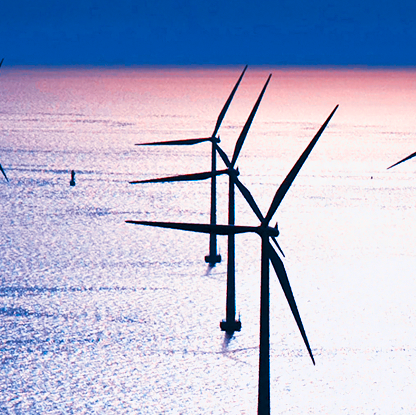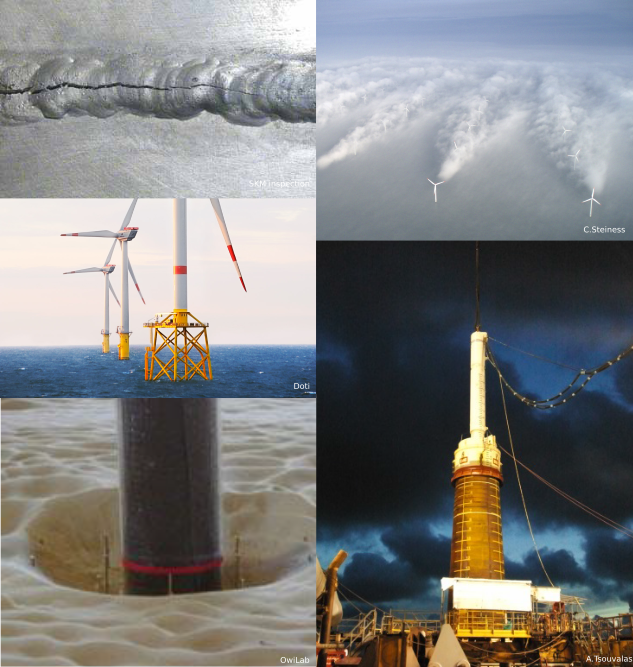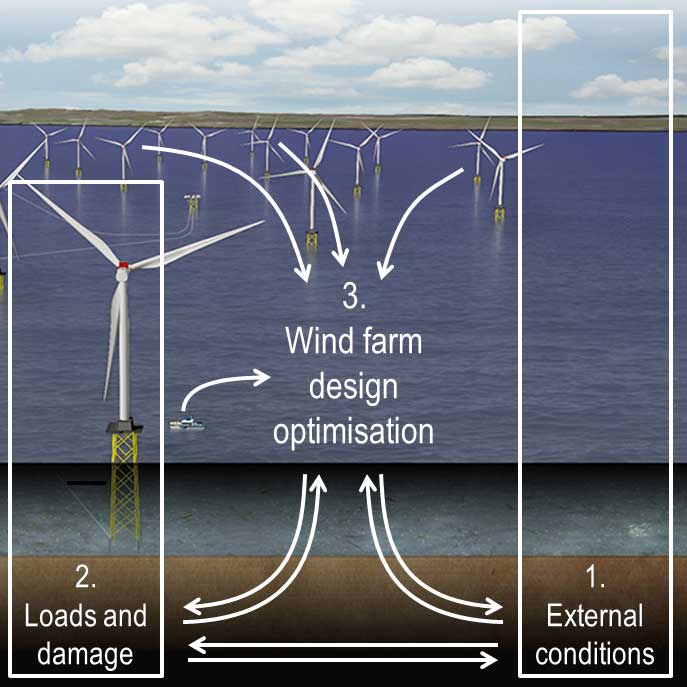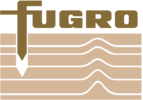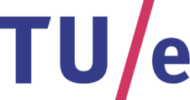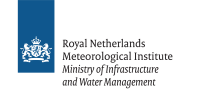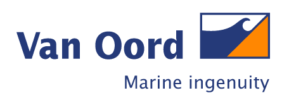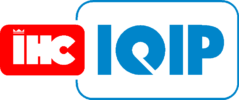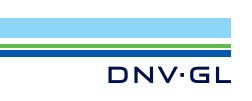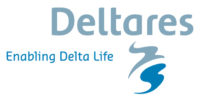The EUROS Programme in a nutshell
Present costs of offshore wind energy go down rapidly, but further reduction is necessary to reach the Dutch National Energy Agreement goal for the share of renewables in total energy production. EUROS focuses on major cost factors: design, construction and logistics of installation and maintenance. The main target is to reduce uncertainties that cause over-conservative safety factors in design, and similarly to improve the efficiency in installation and maintenance logistics by applying the most advanced planning and costing models.
EUROS consist of three closely linked projects:
- External conditions: resulting in advanced probability models for wind and waves—including their correlation—, extended weather forecasts to create more freedom in logistical planning, and efficient numerical techniques—uncertainty propagation—to translate the uncertainties in external conditions into loads on the offshore wind turbines.
- Loads and damage: resulting in a protocol for smart monitoring of loads and damage on the constructions, models to connect monitoring results to damage development—so the consumption of the design-lifetime is known—, and advanced physical models for crack initiation, crack propagation, and seabed erosion.
- Wind farm design optimisation: resulting in integral uncertainty maps on wind farm level—including the introduction of probabilistic planning and costing of logistics—identifying the best options for cost reduction.
EUROS develops tools for a large step in cost reduction of wind energy. Cost reduction is essential for further large scale introduction of offshore wind energy. For the Netherlands alone a cost reduction of 1% already amounts to 180 million euro for investments foreseen in the National Energy Agreement.
EUROS develops tools and models that can be used as add-ons to existing design and planning software, ensuring rapid market implementation. The EUROS program, and its deliverables, were defined in a series of joint meetings of universities, knowledge institutes, and industry. Industry expects a time to market between 6 months and 3 years for EUROS results.
EUROS directly connects to specific strengths of the Dutch knowledge infrastructure and industry. The program strengthens this infrastructure and develops new networks of expertise. For industry, it creates excellent opportunities to create, or strengthen existing, leading market positions. Industry contributes both in cash and in-kind, demonstrating its interest in using EUROS results in their market activities.
